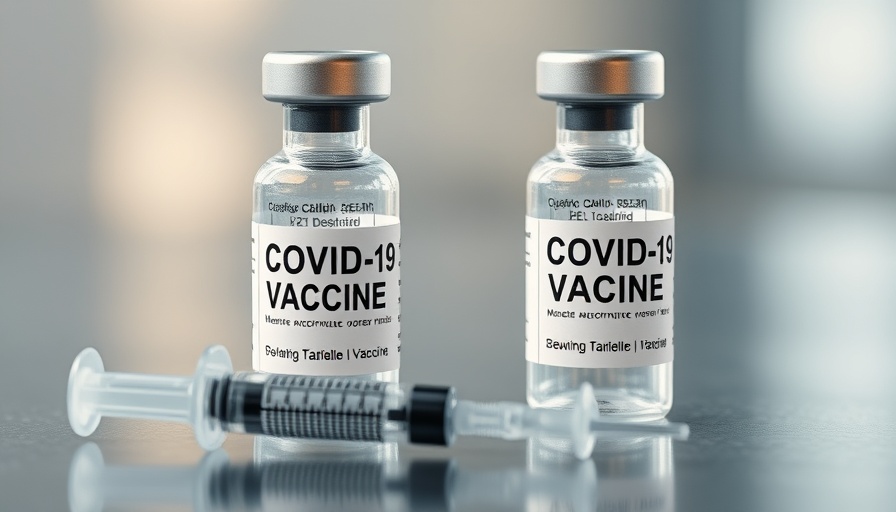
The CDC’s Controversial Shift in COVID Vaccine Guidance for Pregnancy
In a surprising move, the US Centers for Disease Control and Prevention (CDC) has updated its immunization schedules, leaving many healthcare professionals and parents in limbo regarding the COVID-19 vaccine's status for expectant mothers and children. The revisions, which now describe a lack of guidance for administering the vaccine during pregnancy, have sparked debate and confusion among medical experts and advocates.
Unpacking the Implications of the CDC's Announcement
On May 27, Health and Human Services Secretary Robert F. Kennedy, Jr. declared that the COVID vaccine would be removed from the CDC’s recommended immunization schedule. Expert commentary from Dr. Marty Makary and Dr. Jay Bhattacharya supports this decision by emphasizing that “there’s no evidence healthy kids need it today.” This shift raises essential questions regarding the safety of pregnant women and infants, particularly as summer approaches—a season often marked by increased viral infections.
Confusion Within the Medical Community
Clinicians were caught off guard by the CDC’s abrupt changes. Dr. Linda Eckert, a professor of obstetrics and gynecology at the University of Washington, voiced her horror over the announcement, questioning how she will advise her patients. The CDC's lack of direction forces healthcare professionals to navigate these uncertainties without clear evidence or guidance, impacting their ability to make informed recommendations.
Concerns About Vaccine Infrastructure
Experts like Dr. Paul Offit, head of the Vaccine Education Center at Children’s Hospital of Philadelphia, argue that Kennedy’s intentions may reflect a broader anti-vaccine agenda—one that undermines the foundational infrastructure of vaccine trust in the United States. Offit stated, “Leaving clinicians, insurers, and patients to guess is a wholly irresponsible way to do business.” With public health at stake, the onus falls on healthcare workers to protect both mothers and infants.
Potential Health Risks to Pregnant Women and Infants
For expectant mothers, COVID-19 can pose severe risks not only to their health but also to their pregnancies. According to Dr. Eckert, maternal health is crucial in optimizing infant outcomes, as maternal antibodies serve as a primary line of defense for newborns in their early months. This situation sheds light on the importance of vaccinations as an essential health measure, particularly for high-risk populations like pregnant women.
The Traditional Vaccination Recommendation Process
This recent decision by the CDC has alarmed many professional organizations. The removal of the COVID-19 vaccine from the recommended immunization schedule was made without following the established protocol, which typically involves thorough discussion of safety and effectiveness through open public meetings overseen by the CDC’s Advisory Committee on Immunization Practices (ACIP). Bypassing this vital step raises ethical questions regarding policy-making in public health.
Looking Ahead: What’s Next for Vaccination Policies?
As public concern mounts, many are left wondering how this decision may affect future vaccination recommendations. The urgency for clarity is high: With summer just around the corner, understanding the implications of the CDC's policy changes for maternal health and childhood immunizations is critical. Pregnant women and parents need sound guidance to navigate these changes and make informed decisions regarding vaccinations.
Final Thoughts on Navigating Uncertain Waters
This recent shift in vaccine guidance underscores the importance of transparent, science-based discussions surrounding immunizations. As this issue develops, it’s essential for parents and healthcare providers to engage in open dialogues, ensuring that safety remains a priority for both mothers and infants. Staying informed and communicating effectively can help mitigate confusion and foster trust in medical advice.
For concerned parents and pregnant women, the best course of action is to consult with trusted healthcare providers about COVID-19 and vaccination options. Empowering oneself with knowledge is the best preventive strategy.
 Add Row
Add Row  Add
Add 



 Add Row
Add Row  Add
Add 
Write A Comment